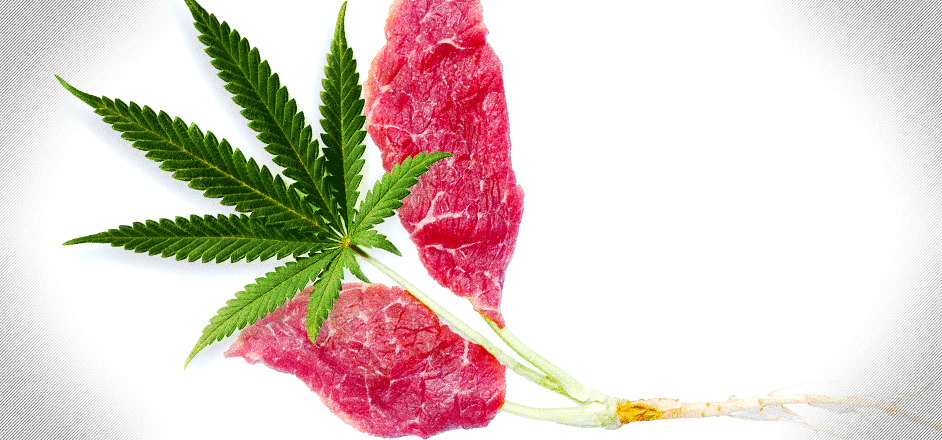Your big Saturday-night ritual of steak dinner and a joint might get more synthetic.
And you'll have to decide: will you eat meat from a petri dish, and relax afterward with a marijuana edible from a test tube?
It's science fiction, yes. But it's science fiction that's not far away.
The science is complicated, but basically companies are trying to make in a lab what nature has long grown in the field. With meat, they're taking a meat cell, putting it in a protein-and-oxygen-rich soup, and watching it duplicate. Companies racing to market this lab-grown meat say their products can be healthier and more environmental; a hippie burger that doesn't taste like grass.
And with cannabinoids, they're taking strands of cannabis DNA and injecting it into yeast, and letting the yeast multiply. These companies are saying they're not far away from reaping lab-grown cannabinoids like CBD and THC grown not from cannabis sativa, but in a sterile room by men in white coats. These cannabinoid companies say their CBC and THC can be cheaper and purer.
But debates are raging online: what are you ready to stick in your face? You cool with synthetic pleasures?
History suggests maybe you should be.
Think of whales: in order to read at night, sailors used to stab humpbacks with harpoons. The oil from the blubber burned in lamps on nightstands.
But sometimes humans try to do less killing, and we go lab-made. Ivory piano keys, feather quills and shark fin boner pills get swapped out for ceramics, Bics and Viagra.
Of course, sometimes we reject synthetic; public opinion is turning against Nutrasweet and and infant formula, and we're moving back toward sugar and breast milk.
Now that "Lab grown meat is coming, whether you like it or not," as Wired magazine predicted earlier this year, media swells with stories of eaters tasting lab meat — most of which looks mushy and mealy — and company CEOs swearing that tons of faux-meat is the future. After all, it would mean less cow-killing.
Less well-known is this beginning of a movement to grow cannabinoids such as THC and CBD with yeast. But a few companies are promising they can genetically engineer the yeast to produce CBD and THC at a fraction of the cost it takes to grow it in actual hemp or marijuana plants.

These advancements pose a conundrum for those who like both meat and cannabis. Are you willing to switch to the fake stuff? What if you couldn't tell the difference?
There's the pro-con arguments, but there's also an aesthetic question.
In this reporter's opinion, we should say yes to the meat, and no to the cannabinoids.
With lab-grown meat, a world with fewer cows in factory farms and pigs in pens seems positive: fewer animals farting out methane.
But with lab-grown cannabinoids: those fields of hemp in Colorado and Kentucky and Oregon — seems like we'd want more of those, not less. They're pretty. They suck in carbon dioxide. Their stalks are used for fiber. What's not to love?
Each person has to decide on their own, what products they'll support. And there's room for lab-grown and field-grown cannabinoids, both. Who, knows: maybe lab-grown cannabinoids will have advantages over the ones in the field, end up being better for the environment or your health.
But if I'm at a restaurant tomorrow and I see "lab-grown meat," I'll give it a whirl.
Meanwhile, if I see "lab-grown weed" at the dispensary? I'll say, "Nah. Pass me the real thing."




Leave a Reply